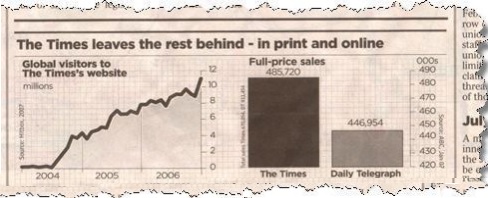Coal has been powering everything since the Industrial Revolution, over 150 years ago. Coal isn't going anywhere anytime soon unless people decide to pursue a less desirable and powerful form of energy.
Coal has historically been a very powerful energy source, but the demand of coal (at least in America) has slowly declined over the years, which has been a talking point for populists in America like Trump and Sanders. People are losing their jobs because of this, and some people point that out as a big problem, but it would still be very hard to save coal. Every other fossil fuel, along with nuclear energy and natural gas, has been the preferred option for consumers, explaining the decline in coal, and that's not even taking in account newer and brewing competition from renewable energy. Eventually, due to these trends and better competition, coal will die. It might not be soon, but it's slowly coming, and it's not hard to find evidence for it in states such as West Virginia.
The sad thing is the enforcement. I live in Canada. In Canada we have a carbon tax. Just earlier this year a woman had to pay $100 for cremating her aunt and scattering her ashes from an airplane. $100!
Though things like a carbon tax and an emissions trading system and other policies will help the energy market innovate and transition much faster and ultimately bring the 'Green/Renewable Revolution' closer to present time, we don't need these policies for it to come. Energy is changing, and whether it comes fast from those economic incentives or slower without them, the market over time will innovate to where renewables will likely be the cheapest and one of the most powerful sources of energy. In some states, solar and wind is already becoming cheaper than fossil fuels. Nuclear is probably one of, if not the, most effective and cheapest energy sources. Fossil fuels definitely won't die soon, and they'll probably still be more efficient for a little bit, but in a few decades it might be different from the present.
I'd like to use an example where Christopher Nolan, one of the most revered filmmakers of the 21st century, stated that we should still use film over digital, saying "just because it's new doesn't mean it's better." I think a lot of people fall into this schism of thinking that just because green energy is the new thing it is better, more powerful, and more productive.
In my opinion we should ignore green energy and focus on the best and by far the most powerful and almost in expendable source of energy: nuclear energy. Green energy has nearly nothing on nuclear energy; green energy can't power an aircraft to remain airborne for nearly a year (see the NB-36H project from the '60s, in which the U.S. attempted to place a nuclear reactor on an aircraft and make it fly for much longer than usual. Green energy would never be able to do this).
I think maybe I should've been more detailed because if I were, we'd be more in agreement. The newer renewables aren't quite more efficient than fossil fuels yet, nor are they cheaper yet, but my point is that over a couple decades they will likely be, and they will likely be the preferred choice. Even right now, people are describing an energy revolution for the consumer because other sources of energy are
starting to compete and make energy prices a lot cheaper, no matter the energy source (well, unless it's coal maybe), and economies around the world are transitioning more to nuclear which is absolutely the next big step in a clean energy revolution as green energy continues to evolve and be more efficient. You're right: green energy isn't there yet.
Ultimately, the summary is that even now with nuclear for example, a lot of times it's cheaper to not use a traditional fossil fuel (except for maybe natural gas, that's pretty cheap), and how developed and developing nations use energy is starting to change dramatically. Whether America were to be in the Paris Climate Agreement or not, it should still be leading in how the world uses energy, energy practices, and energy innovation, which renders us leaving the agreement a worthless decision. We shouldn't be worrying about the few tens of thousands of coal miners having to search for newer jobs because of the shifting trends in the coal market: it's how a capitalist economy operates. Some business will do well, some won't do well, and some will do well but ultimately crash in the end, and when that happens, workers will be forced to adapt.
I can bet that one of, if not the biggest reason Trump is probably going to leave is his promise to save coal. Leaving won't necessarily do that, and saving it is just not the best decision for the whole economy, nor perhaps for coal miners.


